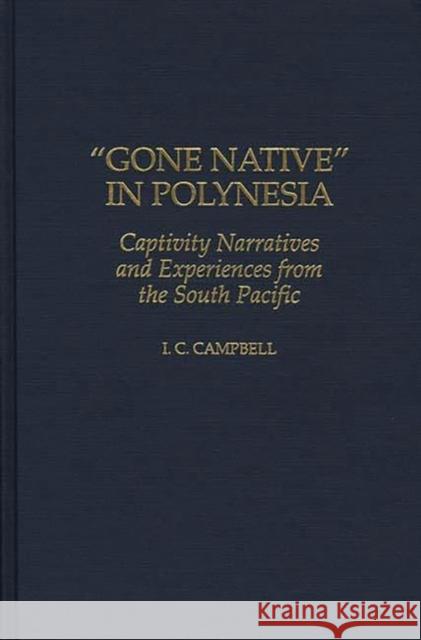Gone Native in Polynesia: Captivity Narratives and Experiences from the South Pacific » książka
Gone Native in Polynesia: Captivity Narratives and Experiences from the South Pacific
ISBN-13: 9780313307874 / Angielski / Twarda / 1998 / 208 str.
Campbell presents a study of the lives and experiences of Europeans and Americans in the age of early industrial overseas expansions, who became detatched from their own societies and lived, sometimes for many years, among Pacific Islanders as integrated members of their communities, often with little hope of returning home and frequently with no wish to do so. As engaging as primitivism was to European philosophers, the realities of contact between seafarers and islanders who faced previously unimagined technological and human marvels were much more pragmatic. Jealousy, ethnocentrism, and violence on both sides competed with humanitarian interests and indigenous hospitality to shape the emerging pattern of relationships.At first, Europeans crossed the oceans only for compelling reasons: the passion for scientific research, the dedication to Christian evangelism, or the uncompromising profit motive. Later, settlers and government officials followed in the wake of these early explorers. Scattered in the interstices of contact relationships were large numbers of men whose interest was not in changing native society or profiting from it, but in experiencing primitive life and simply surviving itself. These men included castaways and deserters, some abandoned by their captains and others kidnapped by the islanders. Their prospects depended on their successful integration into Polynesian society--and in making themselves useful by applying European knowledge and skills to local situations and by mediating between islanders and their insistent visitors.











